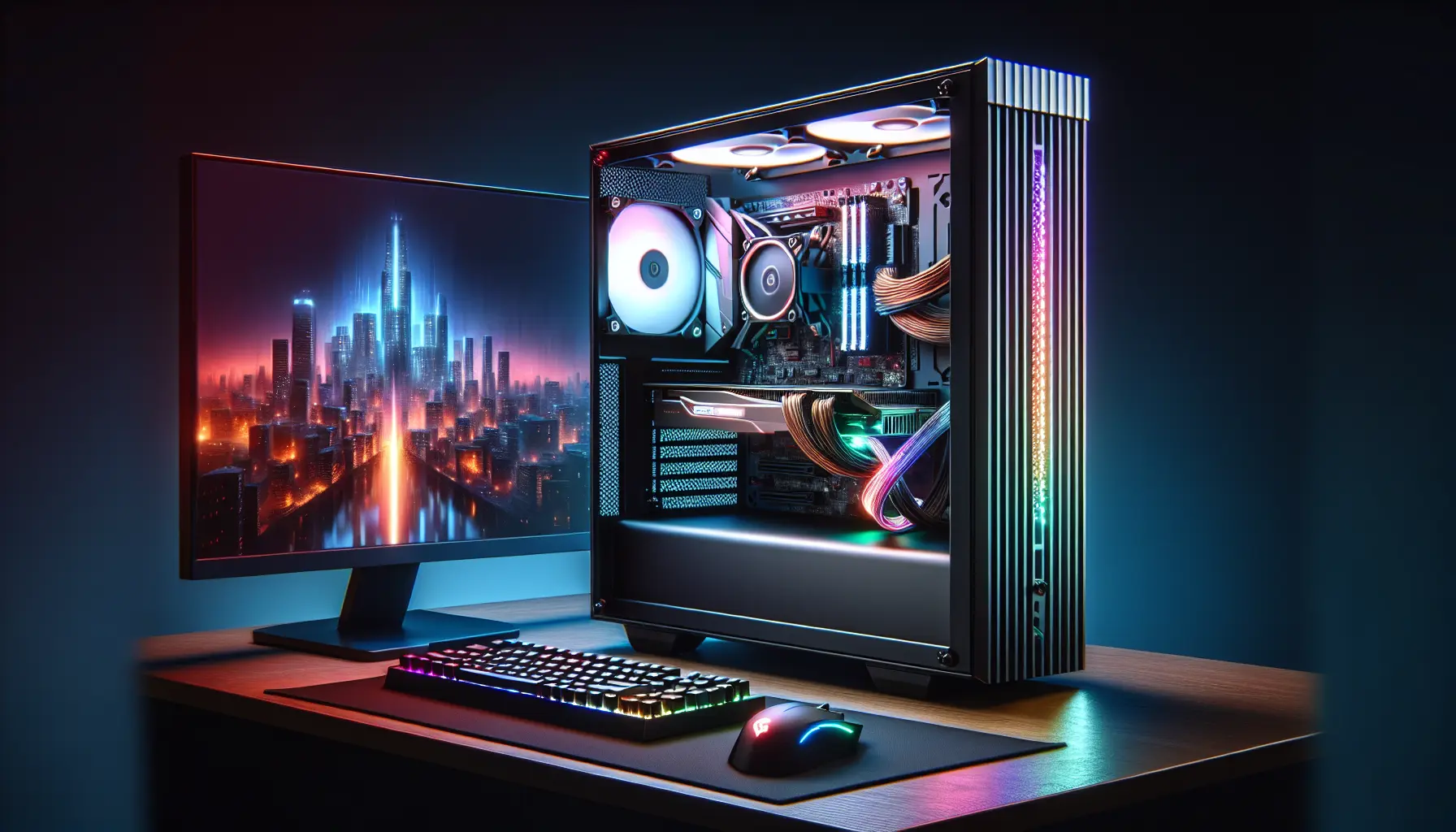
Estimated reading time: 8 minutes
Key Takeaways
- Cost Savings: Building your own gaming PC can save you 20-30% compared to pre-built systems.
- Performance: A budget gaming PC can run popular titles at 1080p with medium to high settings.
- Component Knowledge: Building your PC gives you valuable insights into hardware and upgrades.
- Future-Proofing: Smart planning allows for future upgrades without needing a complete overhaul.
- Community Resources: Utilize online guides and forums for support and advice.
Table of Contents
Why Build Your Own Budget Gaming PC?
Building your own affordable gaming setup offers several advantages. You'll typically save 20-30% compared to pre-built systems, plus gain valuable knowledge about computer hardware. A self-built budget gaming PC can run popular titles at 1080p resolution with medium to high settings, providing an excellent gaming experience for $500-$1000.
Understanding Performance Expectations
A well-planned budget gaming PC can handle:
- Most eSports titles at high frame rates
- Modern AAA games at medium to high settings
- 1080p resolution gaming smoothly
- Basic content creation and streaming
While you won't achieve 4K gaming or maximum settings in the latest titles, you'll still enjoy smooth gameplay in most situations. To stay ahead of the curve, check out our Upcoming Games 2025: Your Complete Guide to Next Year's Most Anticipated Releases for insights into future gaming demands.
Smart Budget Planning
For optimal performance, allocate your budget approximately like this:
- Graphics Card: 30-40% ($150-400)
- Processor: 20-30% ($100-300)
- Memory: 10-15% ($50-150)
- Remaining components: 25-30% ($200-300)
For more detailed guidance, visit this blog post.
Essential Components for Your Budget Gaming PC
Processor (CPU)
Recommended budget options:
- Intel Core i3-14100F: Excellent entry-level choice under $125
- AMD Ryzen 5 5600: Strong mid-range performer around $150
Graphics Card (GPU)
Solid choices include:
- AMD Radeon RX 6500 XT: Great 1080p performance
- Previous generation cards like the RTX 3060 (if found at good prices)
For a deeper understanding of how graphics technology has evolved, refer to our Evolution of Gaming Graphics: From Pixels to Photorealism.
Memory and Storage
- RAM: 16GB DDR4/DDR5 (2x8GB for dual-channel performance)
- Storage: 500GB-1TB SSD for faster load times
Other Essential Components
- Motherboard: B-series Intel or AMD boards offer good value
- Power Supply: 500-600W from reputable brands
- Case: Focus on airflow and cable management
For a visual guide, check out this YouTube video.
Step-by-Step Building Process
- Prepare Your Workspace
- Clear, static-free surface
- Phillips head screwdriver
- Good lighting
- Component Installation
- Install CPU and cooler on motherboard
- Add RAM modules
- Mount motherboard in case
- Connect power supply
- Install graphics card
- Add storage drives
- Cable Management
- Route cables behind motherboard tray
- Group similar cables together
- Ensure proper airflow
Testing and Setup
Before closing everything up:
- Verify all connections
- Test power-on
- Install Windows and drivers
- Run basic stress tests
Common Issues and Solutions
Watch for these frequent problems:
- No display: Check GPU and monitor connections
- Won't power on: Verify PSU switch and connections
- RAM issues: Reseat memory modules
For additional troubleshooting tips, explore our PC vs Console Gaming: How to Choose the Best Platform for Your Needs.
Future Upgrade Path
Plan for future improvements:
- Choose a motherboard supporting newer CPUs
- Select a PSU with extra wattage capacity
- Pick a case with room for additional components
Consider integrating cloud solutions as part of your upgrade by reading our What is Cloud Gaming: Everything You Need to Know About Streaming Video Games.
Building your own budget gaming PC is rewarding and practical. With careful planning and component selection, you can create a system that performs well today and has room to grow tomorrow. Take your time during assembly, follow safety precautions, and enjoy the satisfaction of gaming on a computer you built yourself.
Remember to check current prices and reviews before making final component choices, as the PC hardware market changes frequently.
Frequently Asked Questions
What is the average cost of building a budget gaming PC?
The average cost of building a budget gaming PC ranges from $500 to $1000, depending on the components you choose.
Can I upgrade my budget gaming PC later?
Yes, one of the benefits of building your own PC is the ability to upgrade components as needed.
What games can I play on a budget gaming PC?
You can play most eSports titles and modern AAA games at medium to high settings on a budget gaming PC.
Is it difficult to build a gaming PC?
Building a gaming PC can be challenging for beginners, but with careful planning and following guides, it is manageable.
Where can I find help if I encounter issues?
You can find help in online forums, YouTube tutorials, and tech support communities dedicated to PC building.









